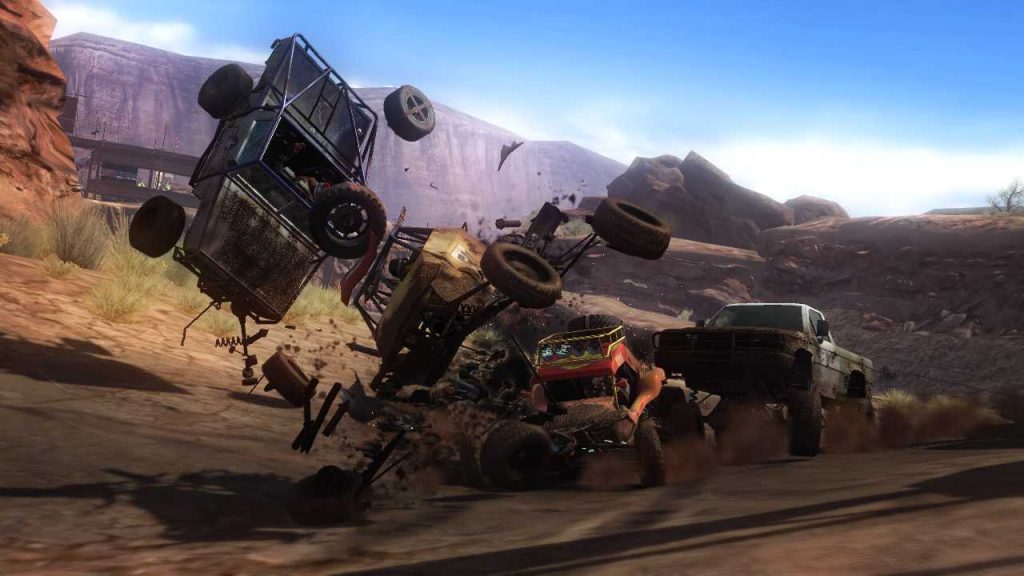When Wushu Studios was announced in January, there were more than a few questions on people’s minds.
Composed of developers from Evolution Studios, the studio responsible for titles like Motorstorm and DriveClub, Wushu was touted as an indie studio which would offer titles with interesting mechanics, unique concepts and refreshing gameplay. Their debut title would be a sci-fi action game using Unreal Engine 4, and they’ve been actively recruiting talent to join the team in Liverpool, England since.
Other than that though, little else was revealed about their first project or even how long the founding of the studio had been floating around as an idea. To that end, we got in touch with Studio head Alan McDermott to learn a bit more about the studio’s creation, and why the team is looking to venture into new waters within die development and the science fiction genre.
How long had the idea of forming your own studio been floating around for?

Wushu Studios head Alan McDermott.
The idea has been floating around for some time, but with us all being involved in various things throughout the years from AAA projects like MotorStorm and Driveclub to more indie titles like Broken Sword, the planets took a while to align!
Nigel Kershaw, the design director here at Wushu and myself had recently been working together on Tethered, a VR god-game that launched to critical acclaim back in 2016. Although we are total nerds and love VR and the new opportunities it presents, it’s clear that gamers aren’t 100% ready to commit yet, so it’s a commercially challenging space for developers to be in. When forming Wushu Studios, we decided to revert to our roots of console/PC game development as we felt this would give us the most opportunity to flex our creativity during concept development.
What elements of the team’s past experiences do you hope will be brought to Wushu’s future titles?
I hope all experiences that everyone on the team has ever had can play some part in the development of our future titles, [but] the hope is that we don’t allow our experiences to distort our view too much… I think if everyone brings all of their experiences to the table, and we’re candid with each other about them and view the experiences of others as additive rather than conflicting, we stand to be a better team and make better games.
Why did Sci-Fi stand out as the genre the team wanted to tackle for its first title?
We’re nerds – total sci-fi nerds! It’s a genre that resonated with us all on a personal level. From Peter F. Hamilton to Isaac Asimov, Mass Effect to Deus Ex, Star Wars to Blade Runner, Star Trek to Black Mirror… the pool of possible influence is enormous, and it’s all so interesting! We wanted to approach narrative and mechanics in an interesting and novel way. We wanted the two things to feel naturally intertwined with each other, and we wanted to avoid the constraints of reality. Without going into any specifics, being avid gamers ourselves, we’re proud of where we’re at with the concept right now. It’s not perfect yet, but it’s definitely something none of us have ever played before!
Will any titles created by Wushu be featured on crowd funding sites like Kickstarter, or are you guys more likely to seek out publishers?
Whilst publishing your own game is a straightforward thing to do these days, it’s really hard to do well. There are so many pitfalls and things that, without the necessary expertise and experience, are all too easy to overlook. We feel our time is better spent focusing on development and making a great game, so we’ll be partnering with a publisher that suits our needs as a studio, and that understands our vision for the game we’re making.

Motorstorm, released on PlayStation 3 December 14, 2006, offered players a racing game with extreme rag doll and destruction physics.
What are some challenges you see to moving into indie game development vs. AAA? What are some benefits?
I think beyond money and financing for your projects, a lot of the day to day challenges that game developers face are exactly the same, whether you are part of a big team or a small team. The main difference being that in a larger team, it can sometimes take longer to put creative changes that need to be made into effect or to re-steer when something’s not quite working. The bigger the ship, the longer it takes to change course.
Alongside this is the fact that the bigger the organization is, the more it instinctively tries to avoid failure. As anyone in game development will attest to, when you’re making games, something will definitely go wrong at some point – that’s just a given! But this is an impossible thing to plan for. The bottom line is that it’s much more expensive for a team of 150 people to get something wrong than it is for a team of 20 or 30, so of course the natural instinct is to try to prevent those missteps from ever happening at all. In a smaller team, it’s a lot easier to view these missteps or failures as a necessary consequence of doing something new.
For more on Wushu Studios, head over to their official website. If you’re looking for more in depth interviews with developers on their games, practices and inspirations, check out our interviews with Tangle Deep developer Andrew Aversa as well as Treadnauts developer Topstitch Games.



